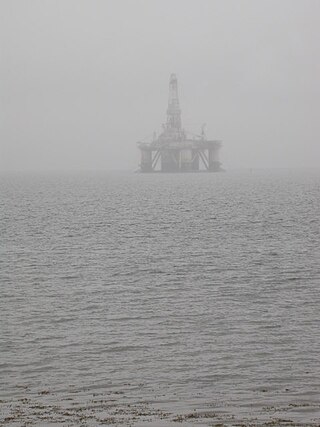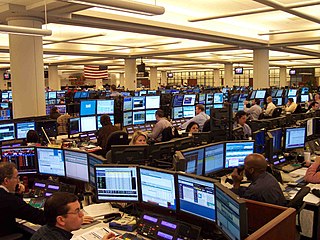
Hitachi, Ltd. is a Japanese multinational conglomerate founded in 1910 and headquartered in Chiyoda, Tokyo. The company is active in a range of industries, including digital systems, power and renewable energy, railway systems, healthcare products, and financial systems. The company was founded as an electrical machinery manufacturing subsidiary of the Kuhara Mining Plant in Hitachi, Ibaraki by engineer Namihei Odaira in 1910. It started as an independent company under its current name in 1920.

Brent Scowcroft was a United States Air Force officer who was a two-time United States National Security Advisor, first under U.S. President Gerald Ford and then under George H. W. Bush. He served as Military Assistant to President Richard Nixon and as Deputy Assistant to the President for National Security Affairs in the Nixon and Ford administrations. He served as Chairman of the President's Foreign Intelligence Advisory Board under President George W. Bush from 2001 to 2005, and advised President Barack Obama on choosing his national security team.

West Texas Intermediate (WTI) is a grade or mix of crude oil; the term is also used to refer to the spot price, the futures price, or assessed price for that oil. In colloquial usage, WTI usually refers to the WTI Crude Oil futures contract traded on the New York Mercantile Exchange (NYMEX). The WTI oil grade is also known as Texas light sweet. Oil produced from any location can be considered WTI if the oil meets the required qualifications. Spot and futures prices of WTI are used as a benchmark in oil pricing. This grade is described as light crude oil because of its low density and sweet because of its low sulfur content.
A green economy is an economy that aims at reducing environmental risks and ecological scarcities, and that aims for sustainable development without degrading the environment. It is closely related with ecological economics, but has a more politically applied focus. The 2011 UNEP Green Economy Report argues "that to be green, an economy must not only be efficient, but also fair. Fairness implies recognizing global and country level equity dimensions, particularly in assuring a Just Transition to an economy that is low-carbon, resource efficient, and socially inclusive."

Brent Crude may refer to any or all of the components of the Brent Complex, a physically and financially traded oil market based around the North Sea of Northwest Europe; colloquially, Brent Crude usually refers to the price of the ICE Brent Crude Oil futures contract or the contract itself. The original Brent Crude referred to a trading classification of sweet light crude oil first extracted from the Brent oilfield in the North Sea in 1976. As production from the Brent oilfield declined to zero in 2021, crude oil blends from other oil fields have been added to the trade classification. The current Brent blend consists of crude oil produced from the Forties, Oseberg, Ekofisk, Troll oil fields and oil drilled from Midland, Texas in the Permian Basin.
Interfax is a Russian news agency. The agency is owned by Interfax News Agency joint-stock company and is headquartered in Moscow.
The Manitowoc Company, Inc. is an American manufacturer which produces cranes and previously produced commercial refrigeration and marine equipment. It was founded in 1902 and, through its wholly owned subsidiaries, designs, manufactures, markets, and supports mobile telescopic cranes, tower cranes, lattice-boom crawler cranes, and boom trucks under the Grove, Manitowoc, National Crane, Potain, Shuttlelift and Manitowoc Crane Care brand names.

The price of oil, or the oil price, generally refers to the spot price of a barrel of benchmark crude oil—a reference price for buyers and sellers of crude oil such as West Texas Intermediate (WTI), Brent Crude, Dubai Crude, OPEC Reference Basket, Tapis crude, Bonny Light, Urals oil, Isthmus, and Western Canadian Select (WCS). Oil prices are determined by global supply and demand, rather than any country's domestic production level.

Legendary Entertainment, LLC is an American mass media and film production company based in Burbank, California, founded by Thomas Tull. The company has often collaborated with the major studios, including Warner Bros. Pictures, Universal Pictures, Sony Pictures and Paramount Pictures, as well as streaming services such as Netflix and Hulu. Since 2016, Legendary has been a subsidiary of the Chinese conglomerate Wanda Group and American equity firm Apollo.

The automotive industry inmainland China has been the largest in the world measured by automobile unit production since 2008. As of 2024, mainland China is also the world's largest automobile market both in terms of sales and ownership.

The Edison Electric Institute (EEI) is an association that represents all U.S. investor-owned electric companies.
Founded in 2001, the American Council on Renewable Energy (ACORE) is a member-based, 501(c)(3) national non-profit organization that unites finance, policy and technology to accelerate the transition to a renewable energy economy.

Actis is a global investment firm focused on the private equity, energy, infrastructure, and real estate asset classes.

Richard Greco Jr. is an American businessman, educator, former United States Government official, and long-standing trustee and benefactor of educational, cultural, and civic institutions. He was appointed by President George W. Bush of the United States and confirmed by the Senate as the nation's 19th Assistant Secretary of the Navy and served from 2004 to 2007.
Brent Walker was a British company involved in property, gambling, distilled beverages and pubs. It was founded by George Walker, the brother of the boxer Billy Walker.
An electric utility, or a power company, is a company in the electric power industry that engages in electricity generation and distribution of electricity for sale generally in a regulated market. The electrical utility industry is a major provider of energy in most countries.
Eco-investing or green investing is a form of socially responsible investing where investments are made in companies that support or provide environmentally friendly products and practices. These companies encourage new technologies that support the transition from carbon dependence to more sustainable alternatives. Green finance is "any structured financial activity that’s been created to ensure a better environmental outcome."

Huayi Brothers Media Corp. is a Chinese multinational entertainment company that owns a film studio, a television production company, a talent agency, a record label, entainterment theme parks, and a movie theater chain founded in Beijing, Shanghai, Hong Kong, Macau, & Taipei by Dennis Wang Zhongjun and James Wang Zhonglei in 1994. The company made world news on October 30, 2009, when the Shenzhen Stock Exchange ChiNext Board was halted, after HBMC's stock price reached 122.74 percent above its IPO price, to open at 63.66 yuan per share. Patrick Frater of Variety called it "China’s largest private sector film conglomerate". In 2014, the company was the seventh-largest film distributor in China, with 2.26% of the market.

Det Norske Veritas (DNV), formerly DNV GL is an international accredited registrar and classification society headquartered in Høvik, Norway. DNV provides services for several industries, including maritime, oil and gas, renewable energy, electrification, and healthcare.
A state-owned enterpriseof China is a legal entity that undertakes commercial activities on behalf of an owner government.











